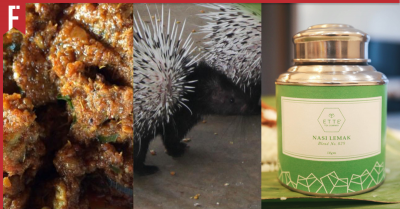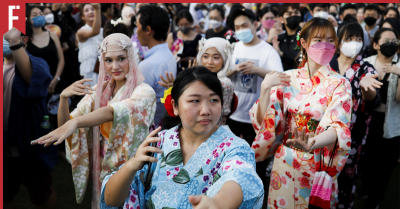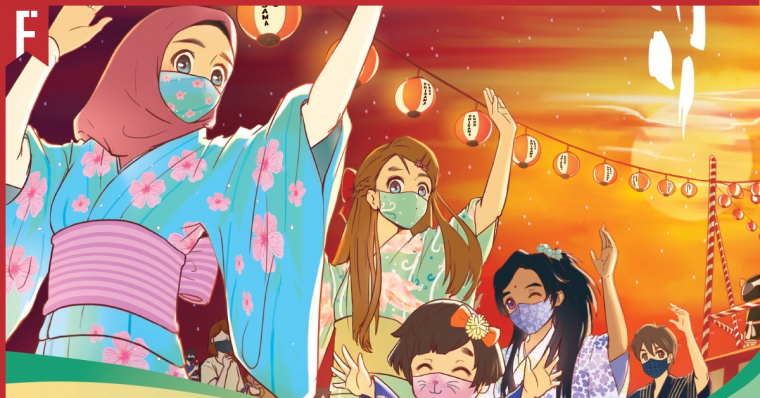
In June 2022, a Minister in the Prime Minister’s Department (Religious Affairs) Datuk Idris Ahmad stirred some debate after advising Muslims against participating in the latest Bon Odori festival.
“A study conducted by the Malaysian Islamic Development Department (JAKIM) found that the festival does have religious elements, so we advise Muslims not to participate in it,” he said, warning Muslims that participating in events like that could affect their beliefs.
This warning was repeated a day later by Penang Mufti Datuk Seri Wan Salim Wan Mohd Noor, who claimed that being involved in Bon Odori could lead to “syirik” (polytheism) practices.
“Since the festival is linked to remembering the souls or spirits of the ancestors, it is feared that it could lead to polytheism. Muslims must always preserve the purity of their Islamic faith,” he said.
Things came to a head when the Sultan of Selangor Sultan Sharafuddin Idris Shah — the head of Islam in his state — released a statement that emphasised the fact the Bon Odori was a cultural festival.
He added that he did not observe any religious elements that could threaten Islam when he attended it in 2016 and urged the ministers to attend the festival to “get a true picture” of the celebration.
The Origins of Bon Odori
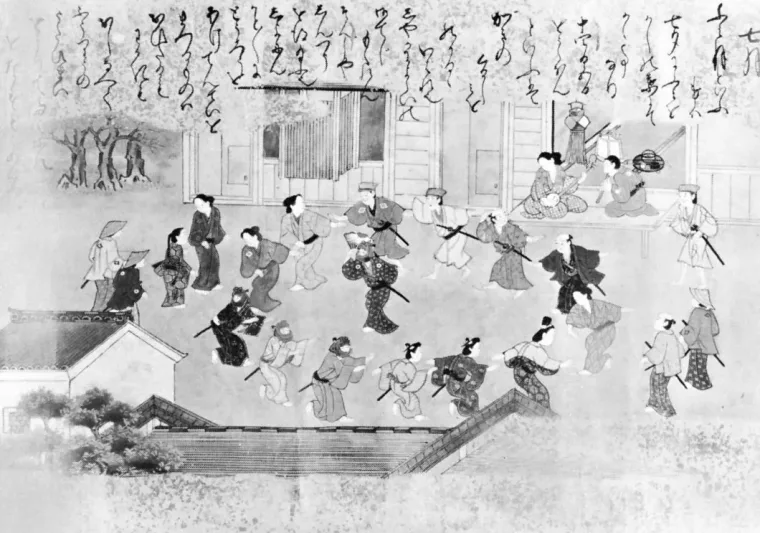
According to legend, hundreds of years ago, there was a woman who had been taken away by hungry ghosts. Her son, distraught and upset, went to the Buddha to ask how he could free her and was told make offerings on the 15th day of the seventh month.
After following the Buddha’s instructions, his mother was released. The boy was so overcome with joy that he danced to welcome her home.
And Thus Began the First Bon Odori Festival
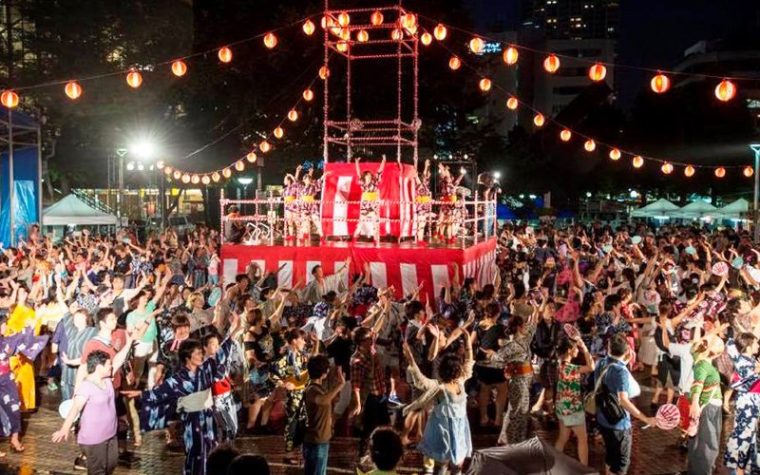
Though the exact details change with each retelling, the general legend still remains.
The name “Bon Odori” means “Bon dance”, which refers to the traditional Japanese folk dance that is performed during this festival. However, dancing isn’t the only thing that happens during Bon Odori.
According to Director of the Japanese Culture Centre for Universiti Sains Malaysia-Kyoto University of Foreign Studies Masatoshi Soeda, the modern festival is seen as a way to celebrate the return of their ancestors from heaven.
“To celebrate the return of ancestors, we dance together to welcome them,” he said. “In contemporary Japanese society, it has evolved into a cultural festival held during summer. There is traditional folk dancing and the yosakoi (an energetic dance).
“It is celebrated the same way in Malaysia, too. People come in their yukatas (summer robes) and have a good time while watching yosakoi dances.”
Wait, Why Are We Celebrating It In Malaysia?
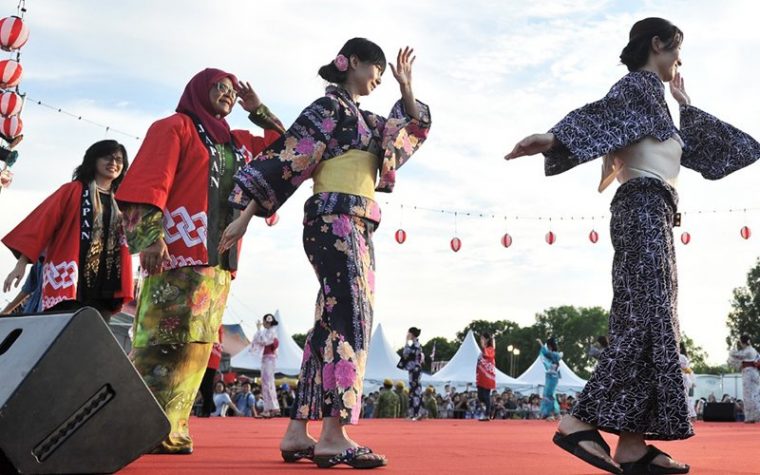
Despite being a Japanese festival, Bon Odori is also a pretty big deal here in Malaysia.
And it’s not a recent thing either. In fact, the first Bon Odori festival was held all the way back in 1977, meaning that the 2022 celebration will be Malaysia’s 46th Bon Odori Festival (not counting the two years skipped due to COVID-19)!
According to The Japan Club of Kuala Lumpur, the first Malaysian Bon Odori was actually “a small affair” organised by Japanese expats who wanted to let their children experience some traditional Japanese culture.
However, their small affair also caught the attention of local residents, many of whom had never seen or heard of such an event before. Over the years, the Malaysian-Japanese community has continued to organise an annual Bon Odori celebration as a way to share their country’s art, cuisine and culture.
Although it’s still a relatively small festival, it has been growing more and more popular over the years — according to The Japan Club, the 2019 celebration attracted around 35,000 participants!
So It’s Not a Religious Thing Anymore?
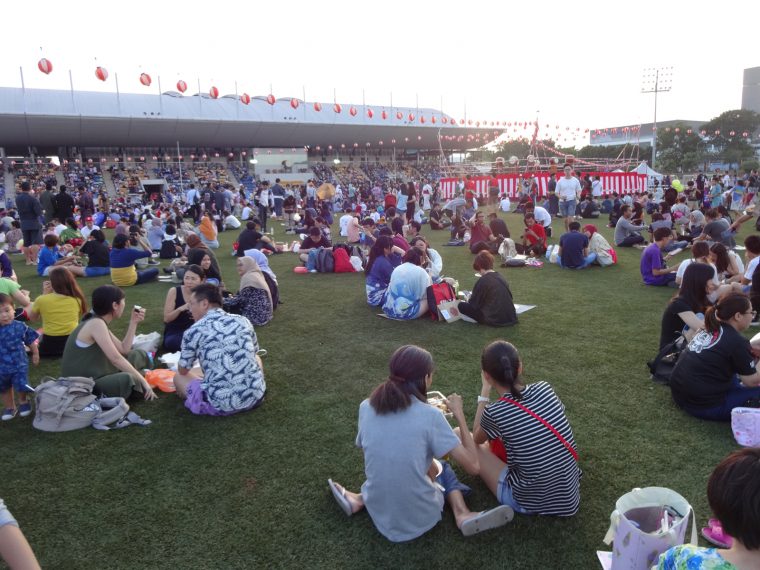
Despite what some might assume, the modern Bon Odori is not a religious event.
Nowadays it is simply a festival — a chance to enjoy good food and music together with your loved ones.
“There is nothing religious about Bon Odori today,” reassured Masatoshi Soeda. “It is a time to reunite with families and friends.”
Japanese Cultural Expert Clement Liang from Ritsumeikan University pointed out that while Bon Odori has some similarities to other events such as the Hungry Ghost Festival, the modern local version also served to help mend ties between Malaysia and Japan after the painful events of the Japanese Occupation.
“Both countries suffered. Many Malayans were killed and the Japanese, too, were killed,” he said.
“Bon Odori is such an excellent opportunity to bring our countries together. We let the war pass and we don’t wish for a repeat of that in the future. We learn about Japanese culture, and they learn about ours.”
Interested in “Getting a True Picture” of Bon Odori 2022?
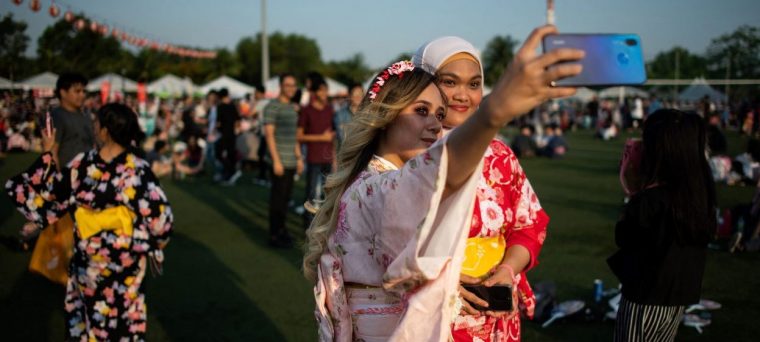
Bon Odori is a big opportunity to learn more about the more traditional side of Japanese culture. If you’re interested in taking part this year, here is everything that you’ll need to know:
Date: 16 July 2022 (Saturday), 4.30pm to 9.15pm
Location: Komplex Sukan Negara Shah Alam (Panasonic)*
Entry Cost: FREE!
Programme (tentative):
- 4.30pm: Gates Open
- 7.00pm: Opening Drum Performance
- 7.15pm: Bon Odori Dance (Part 1)
- 7.45pm: Japanese “Wadaiko” Performance
- 8.00pm: Bon Odori Dance (Part 2)
- 8.30pm: Guest Performance
- 8.45pm: Bon Odori Dance (Part 3)
- 9.15pm: Closing Address
*Due to the limited number of parking spaces, it is recommended to take the free shuttle bus from the KTM Shah Alam Station
Please note:
- Baggage and MySejahtera status checks may be carried out during entry.
- You’re free to dress up in kimonos or yukatas, but face masks are recommended for everyone.
- No high heels allowed on the field to avoid damaging the turf.
- There will be NO alcohol sold during the festival. Bringing your own is fine, though.
- Only the police are allowed to fly drones during the event.
- Hazardous items and/or weapons are banned. That means you should leave the Naruto swords at home, kids.
Have a Happy Bon Odori!
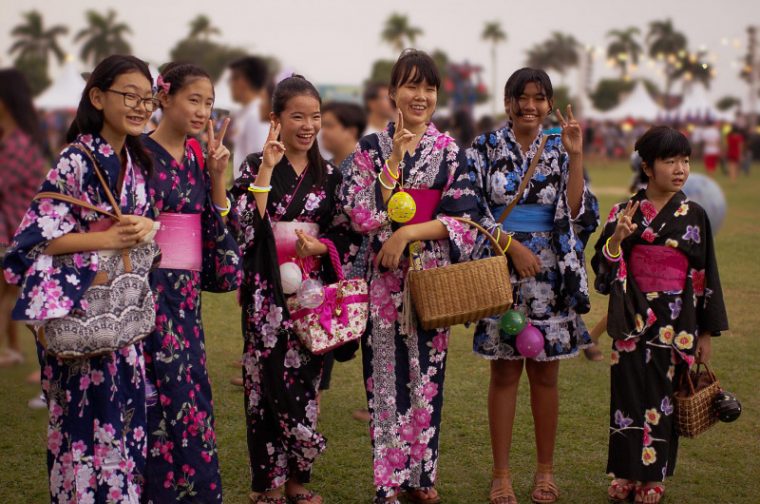
This year’s Bon Odori is shaping up to be a big deal. And why not? After being cooped up at home for so long due to MCO and COVID-19, it’s only natural that Malaysians are feeling eager to celebrate the return to normality.
If this is your first Bon Odori, I hope you have a great time. It may be loud and confusing, but there’s something really amazing about being surrounded by people who are all having a good time.
However, the relationship between Japan and Malaysia has not always been this cordial. While time has helped to heal the bond between our nations, it’s important to remember our history. After all, though it may be hard for many of us in the younger generation to remember, the experiences of the Japanese Occupation have affected us even to this day.
To learn more about this pivotal moment in history, be sure to check out:
Today in History: How The Japanese Occupation Inspired Merdeka



